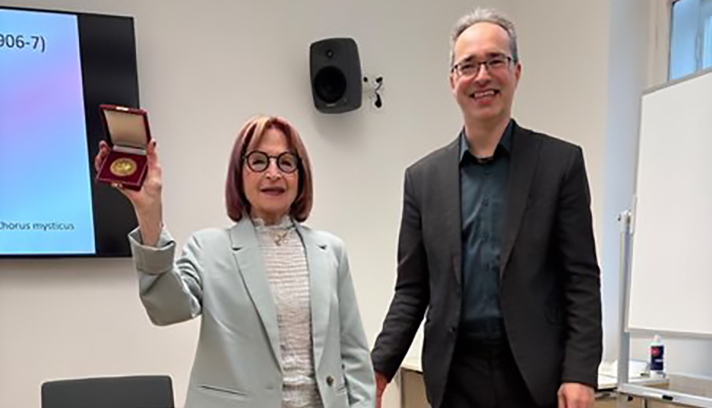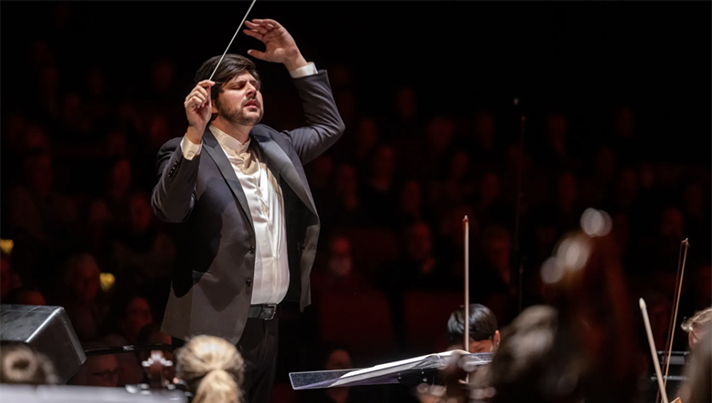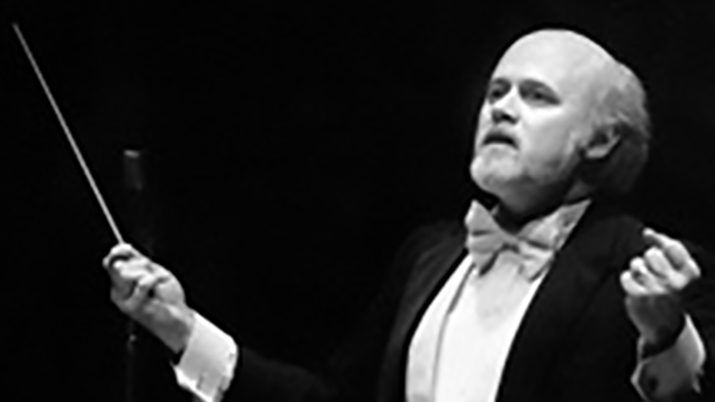Introduce yourself in 280 characters or less.
I am a French-Canadian violist based in Vancouver, where I have the privilege to teach viola and chamber music at the UBC School of Music. In the summer, I teach in my hometown at my most beloved festival, the Domaine Forget international Academy. In the late evening, you can find me knitting, sewing and dreaming about sustainable fashion. I am the mother of Lucien and Tabea and my most precious moment with them is our latte and babyccino ritual on Saturday mornings. I love pugs, sushi, sport psychology and running in Pacific Spirit Park.
How would you describe your approach to teaching music? What do you enjoy the most about teaching?
My teaching is based on infusing deliberate practice, mindfulness and self-sufficiency in my students’ habits. Each student gets a well-balanced technique routine specifically curated to their needs. One of the most efficient way to develop their self-awareness is to ask them questions frequently. While working on the repertoire, I often ask them this set of questions:
-
What is the character?
-
What sound do you need to achieve this mood?
-
What do you need to do technically to make that happen?
This follows them in the practice room later as they craft their artistic vision. It is then my turn to help them express their own interpretation in the most efficient way.
Most teachers see their students individually only once a week. One of my top priorities is to deepen the quality of their practice throughout the week, so that they can become their own guide, and one day, find a passion to teach as well so these principles can be passed to many generations.
I get most satisfaction when students are curious, enthusiastic and driven by the journey of learning. The outcomes will come generously when the students are present in each step that it takes until they reach their goals. This is what makes music research so fulfilling. I consider myself a forever student (currently working on my last seminar of DMus from a distance at the Schulich School of Music!), and I always dream of further studies and ways to make my playing/ practicing more efficient.
What courses are you teaching in 2020/21?
I teach viola instructions (BMus, MMus, and DMA students) and MUSC 163 (Small Ensembles)
What can students expect during their private lessons with you?
Two key words are extremely important for the music-making in my studio:
LISTEN
EXPRESS
During lessons, we learn how to break down or dissemble their repertoire so they can listen to its foundation and connect with what is essential. This technique very much applies to chamber music coachings as well. By making students play in teams (outer voices, inner voices, and mix and match), they listen to different material and notice how they change role constantly. I suggest to listen to everyone but yourself.
Whether you play a quartet or a sonata with piano, score study is essential. Prepare your own part before the first coaching or lesson, but also, be aware of how it fits with the others. This not only saves tremendous rehearsal time, but makes the knowledge of the piece much richer and everlasting. Part of the life of a violist is being a chameleon and transforming our sound depending who you are supporting, or if you have the primary voice.
Of course, accuracy and consistency are important, but not at the expense of expressivity. With the three questions related to character/sound/technique, the student is always thinking of expressivity first, while pairing it with technical tools to support their ideas. These two processes go hands in hands and rarely get dissociated in my studio (unless we are de-rooting unhealthy technical habits!).
What do you love about your instrument? What drives you crazy about it?
I love the chocolatey and earthy tones in the lower register and the acidity and luminosity of the higher register.
I am grateful that the great viola soloists of the last century pushed and bent the possibilities of my instrument, shaping its solo voice and its power. The viola is now taking more place into the spotlight of concertante and recital repertoire.
What drives me crazy is the number of newer pieces dedicated to the viola that are melancholic & sorrowful. A lot of composers associate these feelings to the darkness of the viola, but I think that there is currently an unbalanced amount of “slow and sad” pieces in our repertoire. I always make sure to mention this while working with today’s composers and I often get a high contrast, which is refreshing.
WATCH: Prof. Thibeault performs Peteris Vasks’s Viola Concerto with Sinfonia Toronto (Canadian premiere) in April 2019
https://youtu.be/SGDczUHjpGI
Describe one of your most memorable performances (good or bad!).
My Curtis audition was a memorable moment. I had prepared like an Olympic champion and felt invincible. Every night, I dreamed that I would play like a star and would breeze through the audition like a charm. This was mostly the case!
The first round was bulletproofed. Everything happened according to plan. I was so happy. The results were posted onto the board and I had made the cut (from 100 to 10) and was scheduled to play in the finals later in the day. I was over the moon, to say the least.
As I was warming up for the final, I was convinced that the jury would ask for the Gigue of my Bach Suite, so I went over that carefully again. It was taking so long until it was my turn, I started playing Carl Flesch exercises for up to an hour. I wanted to stay warmed up, but didn’t want to make my repertoire too stale. As I was almost falling asleep in the practice room, I was ushered to the audition room. They indeed asked for the Gigue, and that made me feel at ease. The whole final was very natural and convincing. Everyone was happy on the jury, and the President asked if any members would like to hear anything else?
Only Joseph DePasquale nodded his head, with a “reversed smile” on his face. He said: “I would like to hear to recap of the Walton Concerto, 3rd movement.” He seemed grumpy (maybe he was hungry? ). This was my favorite excerpt from the whole audition rep list. But at this stage, as I thought that the audition was over, the adrenaline slowly escaped my body and I started to feel extremely tired emotionally and physically. I still felt grateful to be playing the gorgeous passage infront of all of my favorite violists and thought to end on a strong note. The pianist started to play the tutti before my entry, and as I got ready to play, I prepared my hand frame on the fingerboard, and started playing, half a step too low…
I thought to myself: “OK, it’s over. I made a mistake. It’s Curtis, they don’t want me anymore.”
Then: “Whatever, just come back strong and make it more beautiful than you ever played it before.”
We left Philadelphia. And as much as I had dreamed to get into Curtis prior to the audition, my expectations were low at this stage. I had found out that I got into Juilliard at that time, with the same teacher as I would have had at Curtis, with a full-ride, so I was grateful of the overall outcomes of my college auditions (I had only done two!). No news from Curtis. The day that I was filling out the paperwork for attending Juilliard, the phone rang. It was the president of Curtis. I was in! He asked me how I was doing, and I told him about the paperwork I was just filling out. He kindly told me to recycle it and then, my half-a-step too low Walton recap felt completely unimportant forever since!
#youdontneedtoplayperfectly #playwithyourheart #dreamaboutmusic #reachyourgoals
What is your favourite piece of music/composer/musician?
Franz Schubert, Winterreise. I dream to play the whole cycle on the viola with piano, one day. I have been studying the text or various translations for a few years. I am obsessed with Ian Bostridge’s version with Julius Drake.
If you couldn’t play viola, what instrument would you like to play?
See previous question (voice). Everybody tells me that I am a soprano, but my heart says Contralto. I guess I will stick to the viola!
When you’re not practicing or teaching or performing, what are you most likely to be doing?
K-n-i-t-t-i-n-g (or running after my children).
Finally, what advice would you give students entering the BMus program this year? And for students thinking about the BMus program, what are your top three best reasons for studying music at UBC?
As I am a forever student, it is easy for me to imagine what the top three reasons would be, choosing UBC SOM:
-
The large ensembles and their incredibly motivating projects (multimedia world premieres to music for social causes);
-
The rich offerings of small ensembles (from early music, string quartets, to contemporary players and gamelan ensemble);
-
Caring staff and faculty who truly want to guide and mentor you on your journey as a musician and help you find your way with the rich possibilities ahead.
Lastly, I would like to leave you with this advice: Try other people’s ideas as if they were your own. I love students who come to lesson/coachings prepared and present their vision of a work. Your time in school is when you should be trying ALL kinds of different ideas and aesthetics, even though they might not feel like “you.” The versions of the works that you learn here are not final. I don’t even feel that the versions I put on a published recording are final as well, if that makes you feel better! Your BMus should feel like a four-year-long lab, where you feel safe to explore and expend your horizons. No need to get “married” just yet with a specific interpretation. Stay open to new ideas and constructive criticism.
For more information about Prof. Thibeault, visit her faculty profile.


